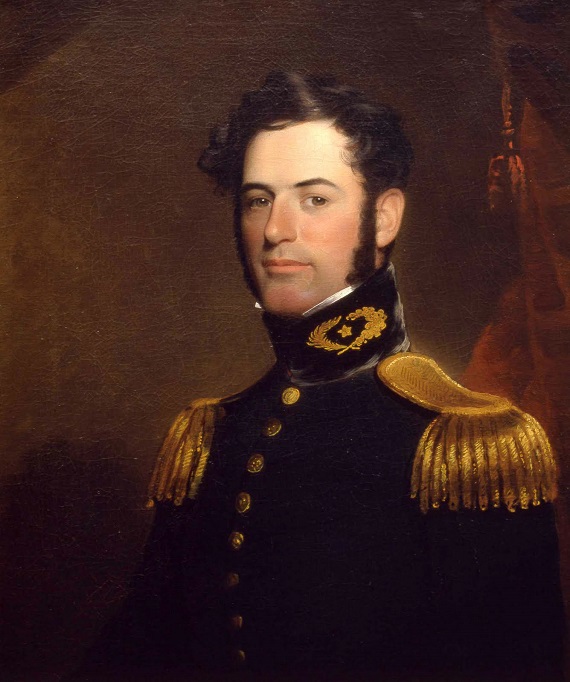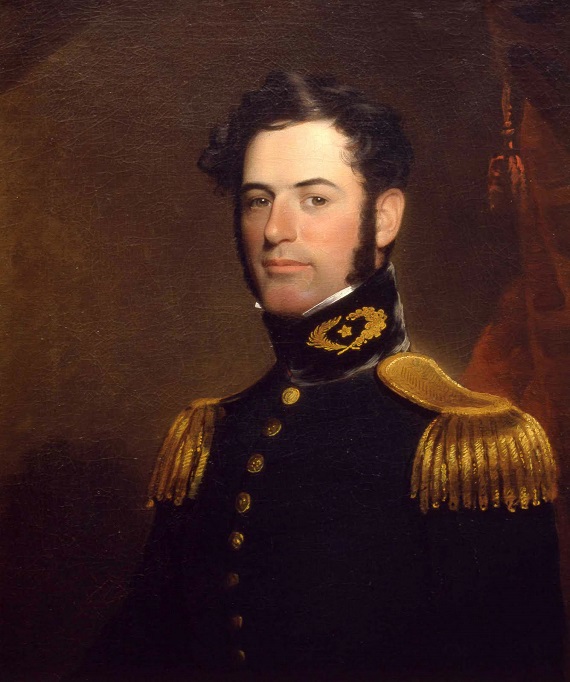Persons interviewed on those amusing and disturbing videos by satirist Mark Dice, were unaware of even basic facts of American history. They had to be told why the 4th of July was observed, and they couldn’t identify the country we declared our independence from. Quite a few thought it was Mexico. One woman claimed that America gained its independence from the South in the Civil war. The interviewees didn’t question the statement that John Wilkes Booth was one of our Founding Fathers. Some claimed that Abraham Lincoln wrote the Declaration of Independence, and it was issued in 1964, and some felt that the Bill of Rights should be repealed because it is “outdated and old-fashioned.”
Sadly, these responses, although extreme, are not that uncommon. They are an indication of how outrageously uninformed some Americans are. And these clueless Americans represent a growing segment of the population – a segment that knows a lot about electronic devices and popular entertainment venues, but pathetically little about America.
Any Hollywood film adaptation of a popular novel is a good analogy for versions of history redesigned for the general public. To fit the time constraints of a film, the novel’s plot is simplified; scenes shortened or omitted, and characters eliminated. For greater audience appeal, the story line is often altered, sometimes the ending is changed, and much of the film ends up on the cutting room floor. However, most individuals who have only seen the film, think that they fully understand the novel itself. Likewise, quite a few Americans have blithely accepted “one-sided and politicized” versions of our history.
Luckily, a growing number of complaints about “one-sided and politicized” interpretations are finally being heeded. College boards and some state commissions have revised textbooks and other educational materials in order to present a more balanced view of American history. The revisions are primarily a revival of accounts of history that were taught in prior generations, roughly before the 1960s, before multicultural values began replacing mainstream values.
Average Americans have neither the time nor the interest to delve deeply into accounts of history, and they rarely question the interpretations offered by politicians and activists. One illustration of selective history is the campaign to change the name of Robert E. Lee Elementary School in Long Beach, CA.
This school was founded in 1898, and has survived for almost 120 years. Those demanding that the school name be changed are opposed by a substantial segment of students, alumni, and citizens. Generations of Long Beach residents that have attended Robert E. Lee Elementary, have fond memories of their school days, and they have made it clear that they are not in favor of a politically correct name change. So, those who are demanding a new name for the school, have adopted the derisive tactic of denigrating Robert E. Lee personally.
Local assembly woman Lorena Gonzalez insisted that children shouldn’t attend a school named after General Robert E. Lee. She stated: “They’re going to a school that really is named after a guy who fought his own country to protect slavery.” This sentiment was also expressed by activist Pedro Baez, who stated that Lee’s name was “..an affront to people who fought and wanted to abolish slavery.”
Recently revised textbooks have moved away from claiming that a “single issue”, slavery, caused the war. They list other reasons in addition to slavery. Actually, the anti-slavery sentiment in the North in the mid-1800s was not widespread, and even those Northerners who opposed slavery were not willing to risk their lives on the battlefield to end it. Northerners were informed that they were fighting to preserve the Union. It is highly unlikely that most Northerners would have fought to prevent Southern planters from using slave labor. In fact, Northerners worried that an end to Southern slavery would cause an unwieldy mass migration of freed slaves into the North.
Predictably, Ms. Gonzalez invoked the Confederate flag, thinking that it would help her demonize General Lee. She made this hyperbolic assertion: “The flag in particular, and anyone associated with this army, in general, have been associated with intolerance, racism and hate, none of which have a place in our schools.”
Admittedly, historians sometimes have to rely on conjecture when there is insufficient data about the historical period they are writing about. But even career race-baiters would be reluctant to employ such an oversimplified, all-encompassing phrase as “anyone associated”.
Councilwoman Tonia Reyes Urgania made this attack on Robert E. Lee’s name: “Like the Confederate flag, it cannot continue to be ignored for what it represents to a majority of people.” In reality, opinion polls indicate that the majority of American people believe that the Confederate flag represents heritage rather than hate.
Black activist Earl Ofari Hutchinson stated: “Robert E. Lee was a traitor to the United States Constitution. Robert E. Lee upheld slavery.” Condemning Lee as a traitor to the Constitution requires accepting Abraham Lincoln’s argument that secession was “illegal.” If states could not secede, then the South never left the Union, so Lee was waging war against his own country.
But the question as to whether secession was legal or illegal had not been resolved at the time that Lincoln made his pronouncement. From our country’s inception the legality of secession had always been open to question. Many current constitutional scholars believe that secession was, and is, legal. We should recall that the Supreme Court case resulting in a ruling against secession by Texas wasn’t rendered until a few years after the War Between the States ended. And, even in this case, three justices dissented. Also, during the entire War, slavery was legal under the Constitution – The Amendment that outlawed slavery wasn’t ratified until after the South surrendered.
Local newspaper journalist Tim Grobaty has also called General Lee a traitor. But he went further by calling Lee “the country’s most renowned traitor”, contradicting historians who give that odious designation to Benedict Arnold. Dismissing the opinion that General Lee “…should be judged by the time in which he lived”, Grobaty said, “That’s a bit of a crutch nowadays.”
Should historical individuals from prior centuries be judged by today’s values rather than those existing during their own time? Should British historians discontinue ranking Queen Elizabeth 1 among England’s most famous monarchs because of her reign’s involvement with pirates and slave traders in the 1600s?
To no one’s surprise, the New York Times endorsed the school’s name change and columnist David Brooks dutifully recited pre-packaged anti-Lee platitudes, adding this characterization of General Lee: “Unlike Lincoln he accepted the bondage of other human beings with bland complaisance.”
As a lawyer, Abraham Lincoln helped recover runaway slaves, returning them to bondage. His Emancipation Proclamation did not free slaves in states that fought on the side of the Union, and it allowed Southern states to keep their slaves if they discontinued their war efforts. Mr. Lincoln maintained that whites were superior to blacks, opposed citizenship for blacks, and attempted to have freed slaves shipped en mass out of the country.
The mindset of those pushing for a school name change is further illustrated by one of their remarkable suggestions for the new name: “Harper Lee.” This proposal is a perfect example of an impulsive “pop culture” mentality. Those who suggested it would do well to consider that Harper Lee’s decades of celebrityhood appear to be drawing to a close. Overall, “To Kill a Mockingbird” was not well-received by literary critics in the 1960s, but only lauded by the Northeast establishment, who maintained that Ms. Lee, a Southerner, confirmed their view of the South as being replete with callous racists. But the reputation of Harper Lee’s novel no longer seems sacrosanct in this post civil-rights era, while Robert E. Lee’s hallowed reputation has held firm for well over a century.
We have to wonder if the attacks on Robert E. Lee’s name are simply part of the ongoing hysteria against Confederate symbols or if there will be removal campaigns against those other offensive California school names? Thomas Jefferson High School is named after a president who owned slaves. And Wilson Middle School is tainted because Woodrow Wilson has been accused of racism. President Lincoln’s history of making crude racial jokes and expressing racist opinions stains the Abraham Lincoln Elementary School. And Lindbergh Elementary School is named after Charles Lindbergh, who was often accused of anti-Semitism.
Americans are realizing that the same strategy that is successfully disparaging Southern heritage is now being used to disparage America’s past. A substantial segment of the population has already been inflamed against the country as it was originally founded, and has long existed. Many of our once celebrated presidents are now being trashed, and there are even passionate demands that the American flag be replaced. But what the Left claims is “offensive” is part and parcel of American history. Based on the removal of Southern heritage symbols, we should have learned that no matter how much of our past is eradicated, radical revisionist will always find something to object to. Our politicians know this. But, accomplishing something necessary for our country is beyond their ken, so they continue to call for the removal of symbols, hoping their constituents will think they are achieving something.







